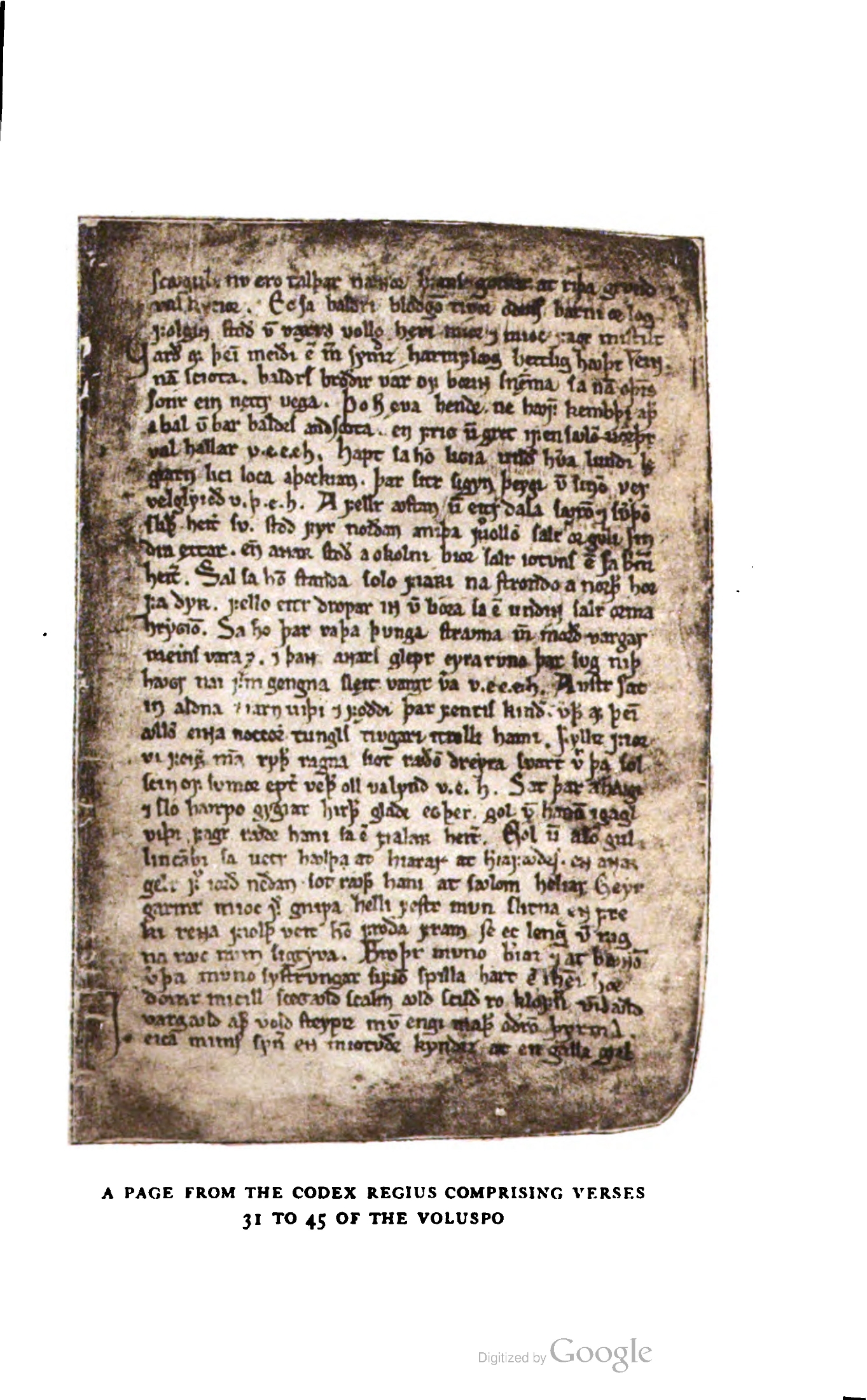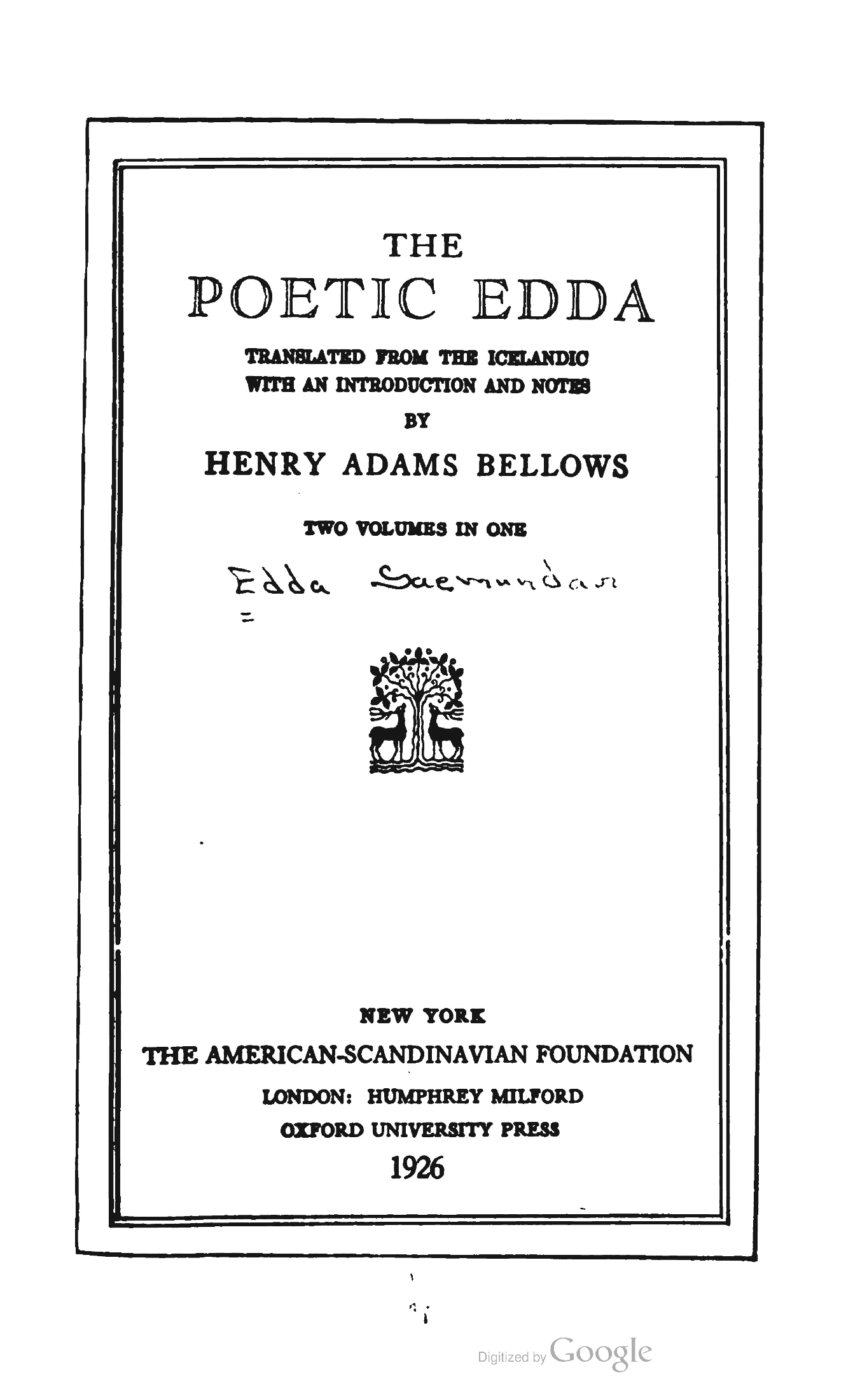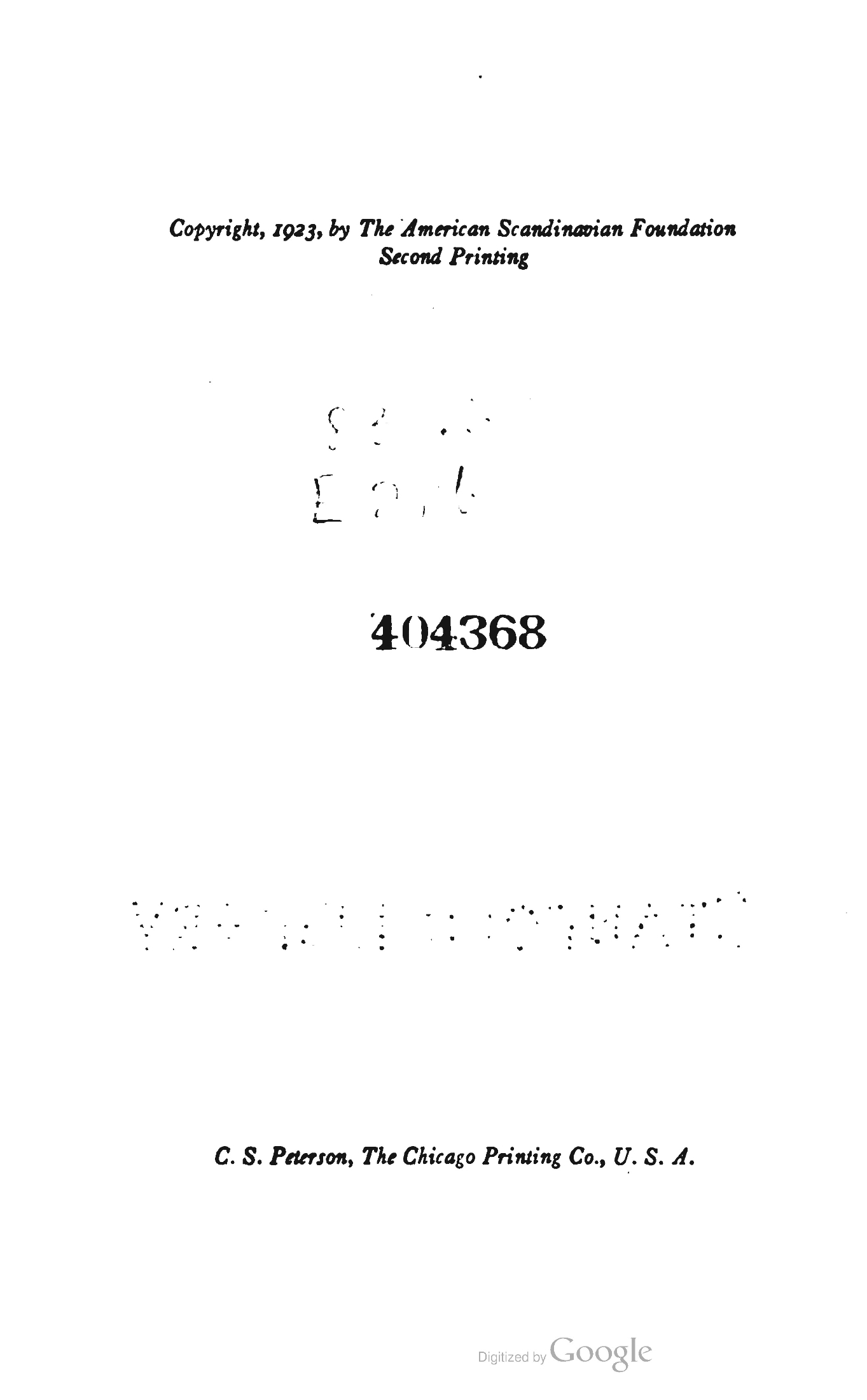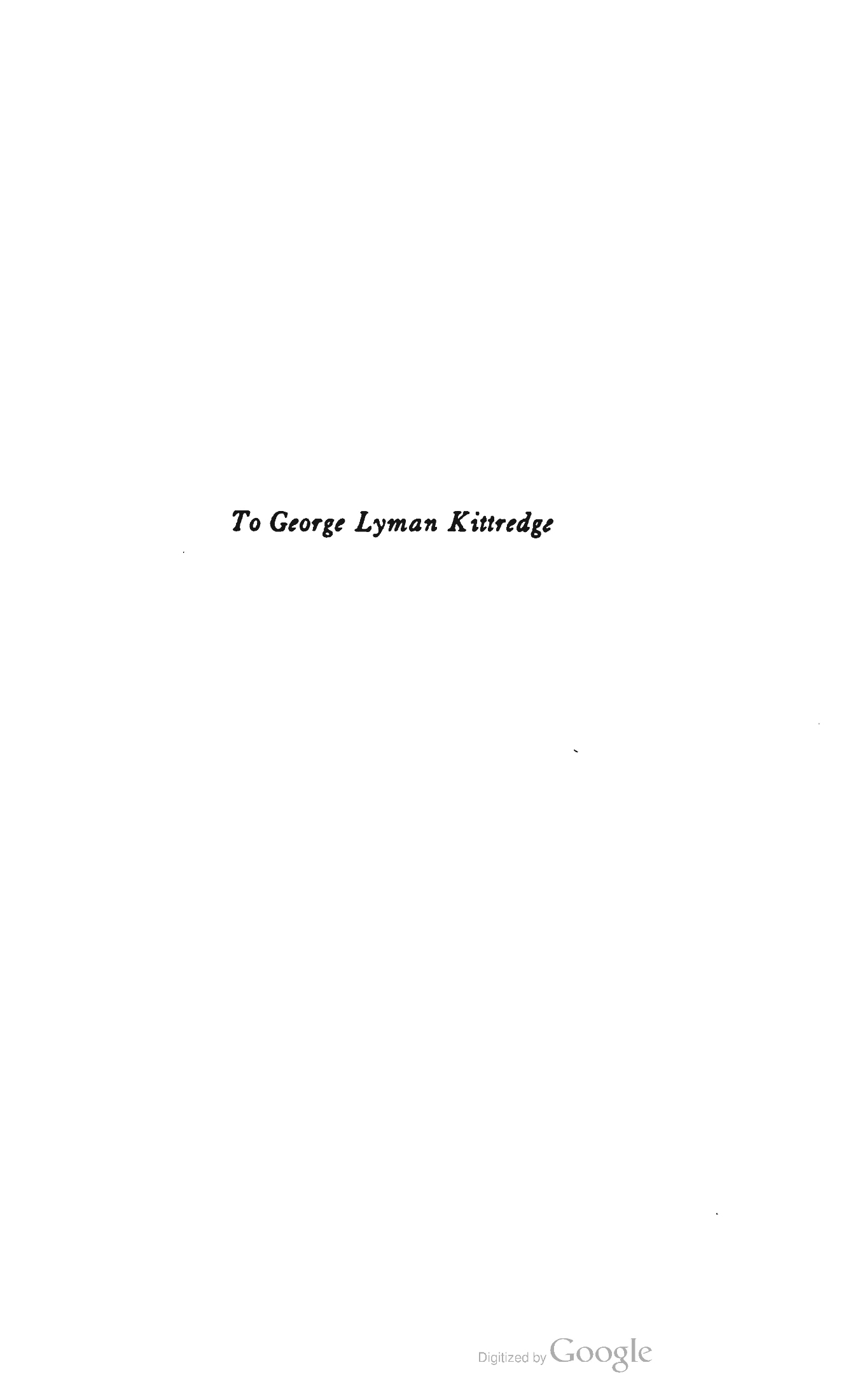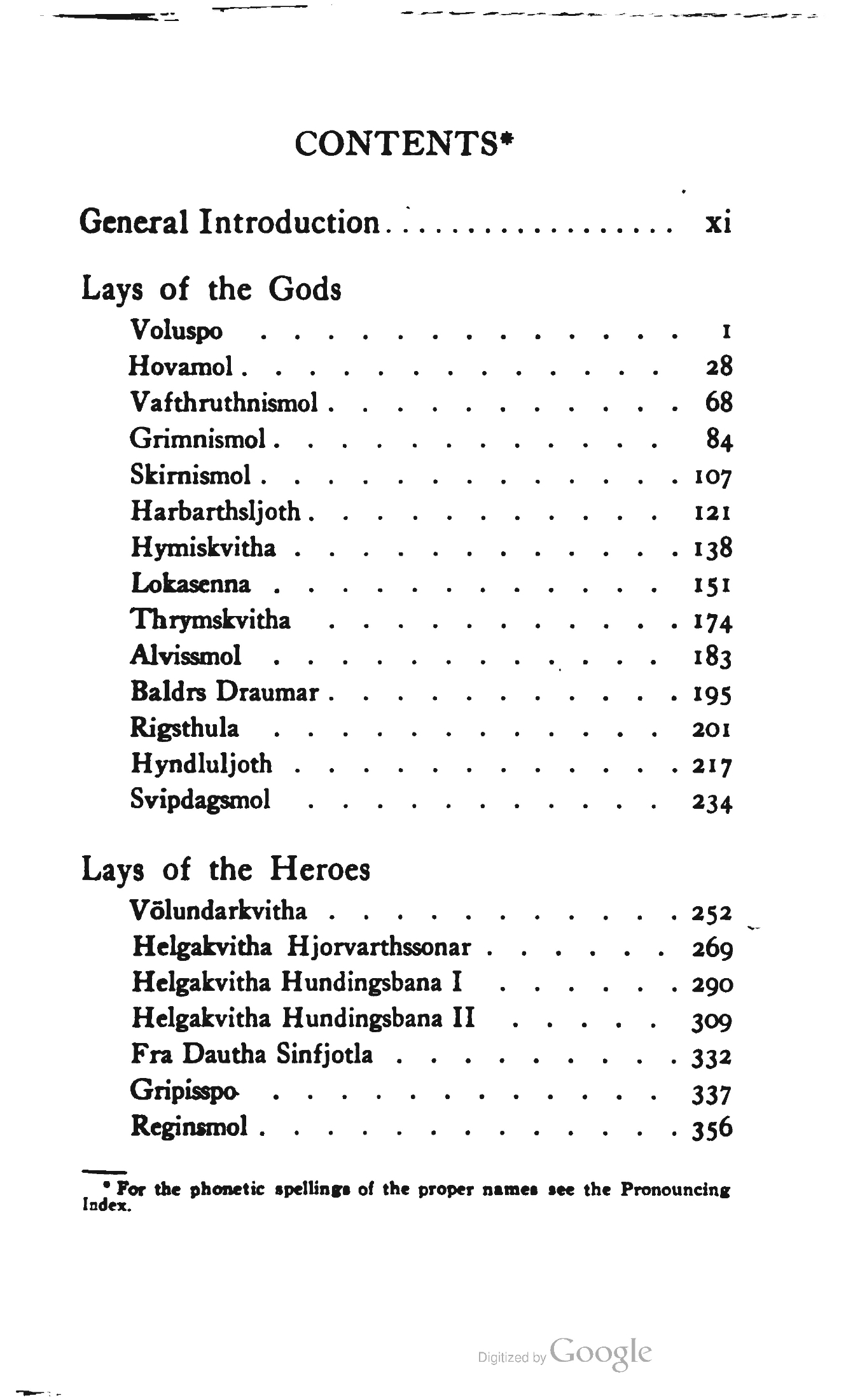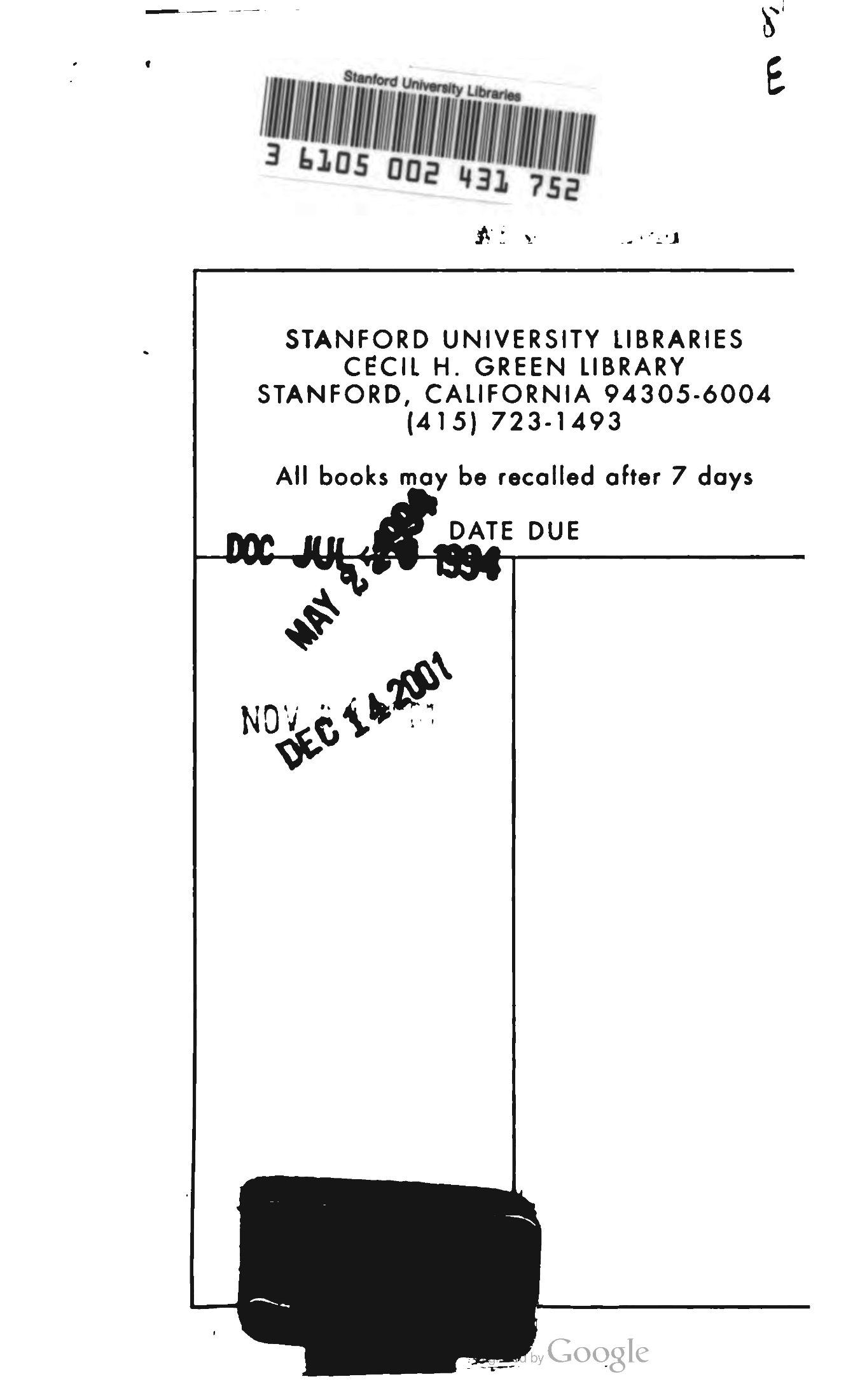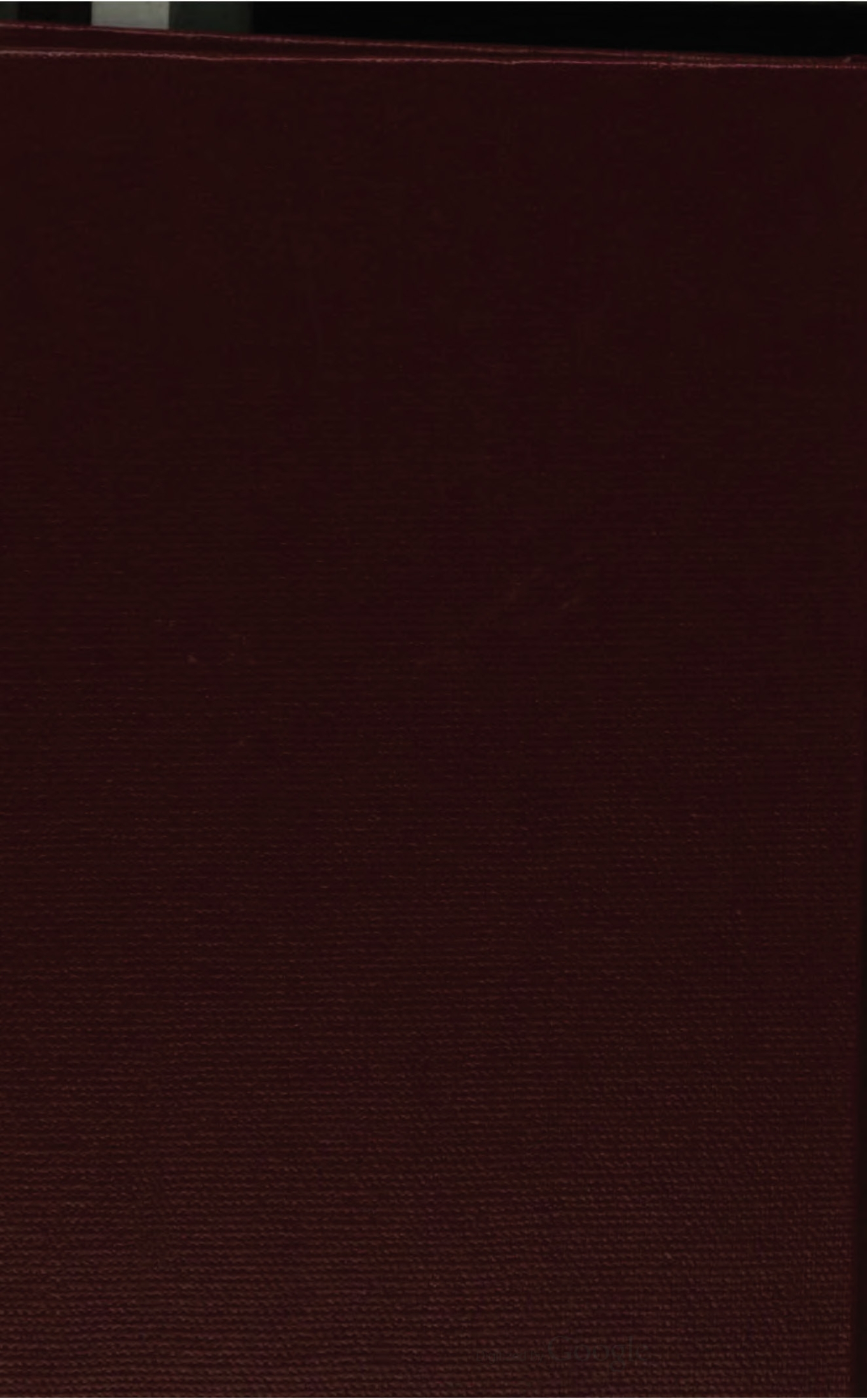About
The Poetic Edda is a 1926 two-volume work by Henry A. Bellows. The book translates the Codex Regius manuscript (Icelandic to English), which contains Norse mythology from the middle ages.
Source: OMNIKA
Access
Read for free
External sources
Primary
Myth

An old woman, the seeress, addresses both humans and deities in a monologue that explains how the world was created, destroyed, and reborn. The world was initially raised from the sea and the sky created. Three giant maidens threaten the new world. Humans and dwarfs are created. The first war between the old deities takes place. The seeress tells Odin that the world will be destroyed. Several deities die and Loki is bound. In the final few lines, the new world resurfaces.
Belief system
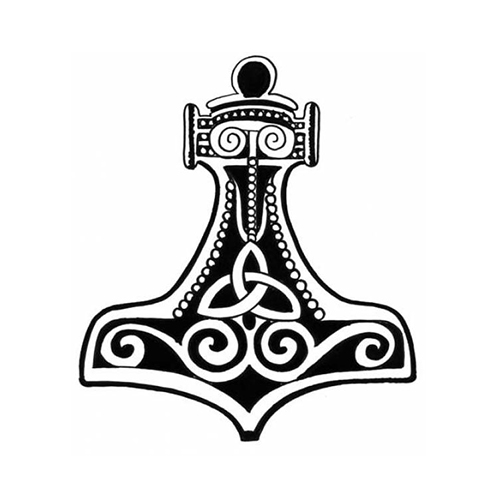
Norse Paganism refers to the beliefs and traditions of people from Scandinavia: Iceland, Norway, Sweden, and Denmark.
Deity
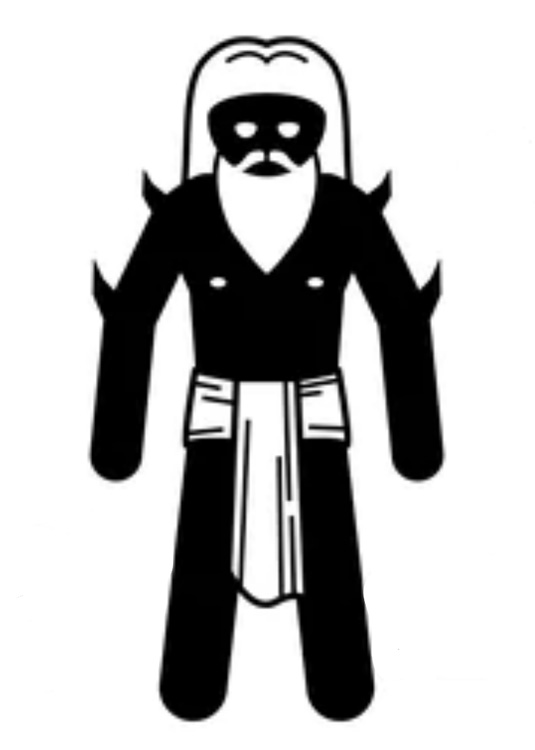
Ymir was the first and oldest figure in the Norse pantheon of deities. He is described as a primeval creature who was born from venom that dripped from icy rivers.
Translation
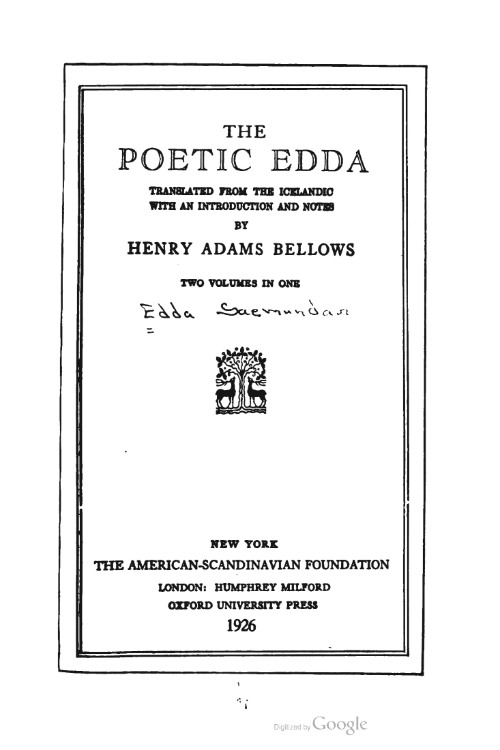
"Voluspo: The Wise-Woman's Prophecy" is a 1926 translation of the Old Norse Völuspá creation myth. Henry A. Bellows' translation from Icelandic to English is 66 stanzas long and readable for most people.
Myths cited
It looks like only the main myth was referenced in this work.
Belief systems cited
It looks like only the main belief system was referenced in this work.
Primary
Artifacts cited
It looks like only the main artifact was referenced in this work.
Contributor
Cite this work
ChicagoBellows, Henry A., ed. The Poetic Edda: Two Volumes in One. New York, NY: American Scandinavian Foundation, 1926.




